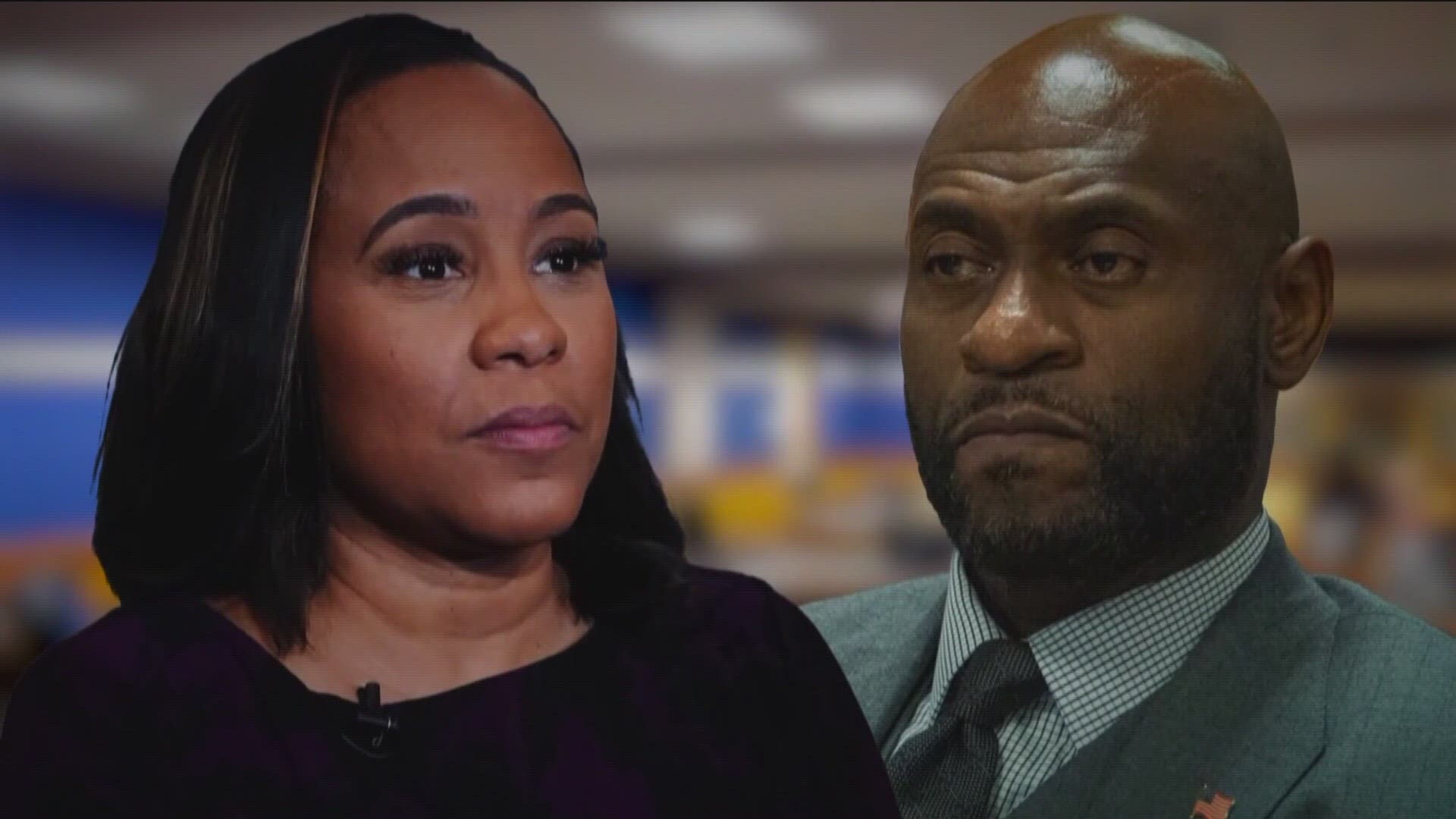ATLANTA — For two days last week, the political world was fixated on a Fulton County courtroom where DA Fani Willis and special prosecutor Nathan Wade, among others, took the stand a hearing was held for motions to disqualify them both from the Georgia Trump case.
And there's still more to come.
RELATED: Fani Willis case ensnared in legal arguments during testimony about romantic relationship timeline
For one, there still needs to be a hearing to allow attorneys to argue their cases. The first two days of a hearing last week were evidentiary.
Those arguments could come at a hearing that would take place at the end of this week or sometime next week. A ruling on disqualification would follow sometime later.
A further potentially complicating matter came at the very tail end of last week's two-day hearing.
How court could return to Terrence Bradley
Terrence Bradley, a former law partner and one-time divorce lawyer for Nathan Wade, testified under oath Friday. The defense team put him on the stand under subpoena. Those defense attorneys spent more than two hours probing him for information about Willis and Wade’s relationship. They were particularly interested in learning when that relationship began -- which has become a core issue in this controversy
Bradley said he couldn’t answer because any information he might have was protected by attorney-client privilege from his time representing Wade in his divorce.
After hours of trying to probe their way into that information without success, the defense sat down.
The state had no obligation to ask questions on cross examination. They could’ve asked nothing and allowed the witness to be excused. Instead, special prosecutor Anna Cross began a series of questions about the circumstances under which he left the law partnership he once shared with Nathan Wade.
And Bradley provided answers.
Minutes later, Judge McAfee laid out the problem: “Where I think we are with this is that Mr. Bradley previously testified that the reason he left the firm was totally and completely covered by privilege. When asked by the state he went into a factual scenario that to my mind I don’t see how it relates to privilege at all. And so now I’m left wondering if Mr. Bradley has been properly interpreting privilege this entire time.”
In other words: through their own questions, the state may have pierced Bradley’s veil of attorney-client privilege that the defense team seemed unable to break through.
Judge McAfee said he would have an off-record conversation -- known as an in camera hearing --with Bradley and his attorney to determine whether attorney-client privilege was being improperly asserted.
If the judge determines that it was, the defense team may have the opportunity to put Bradley back on the stand and ask him more questions under oath.
News happens fast. Stream it faster with our re-designed 11Alive+ app.
Watch newscasts, breaking news streams and get the latest sports, weather and VERIFY content -- 24 hours a day, 7 days a week. Available on Roku, Apple TV and Amazon Fire TV. Text "plus" to 404-885-7600 to download 11Alive+ and stream now.

